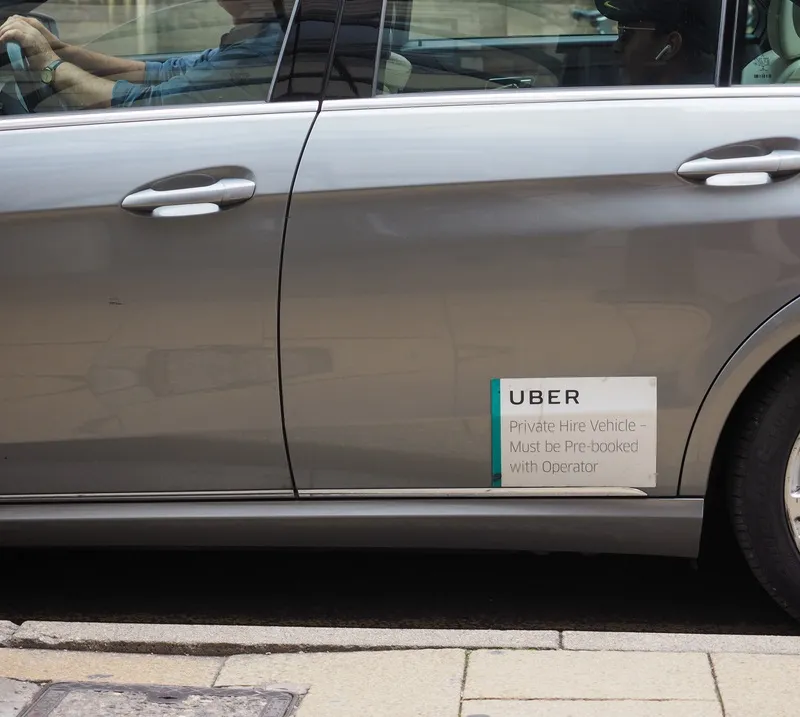Uber's director of public policy for Europe, Simon Hampton, has suggested that he sees a chance at winning over governments pursuing legal action against the company.
“If you're in a city Uber hasn't come to yet, then creating a group of people to say they want Uber and to put pressure on local politicians - that's hard," Hampton said at a panel discussion in the European Parliament, reports euractiv.com.
Uber has faced legal inquiries in the Netherlands, Germany, Spain, Belgium, Italy and Portugal ov
July 13, 2015
Read time: 3 mins
Uber's director of public policy for Europe, Simon Hampton, has suggested that he sees a chance at winning over governments pursuing legal action against the company.
“If you're in a city Uber hasn't come to yet, then creating a group of people to say they want Uber and to put pressure on local politicians - that's hard," Hampton said at a panel discussion in the European Parliament, reports euractiv.com.
Uber has faced legal inquiries in the Netherlands, Germany, Spain, Belgium, Italy and Portugal over the last year. The company responded by filing complaints with the1690 European Commission against France, Germany and Spain.
It has been criticised worldwide over how it pays drivers, charges passengers and ensures their safety. Taxi companies argue it competes unfairly because it does not have to pay their steep licence fees and bypasses local laws.
Regulation of taxi services is the competence of member states, the European Commission said, but it would assess the complaints in light of the principles of proportionality, non-discrimination and freedom of establishment.
But the legal backlash isn't restricted to Europe. Hampton underplayed last week's events in France, suggesting they marked only a small dramatic uptick compared to previous reactions against Uber.
“We are a San Francisco-based company and we've struggled in San Francisco as we have in New York and in other cities too,” Hampton said.
“A year ago, I think our American colleagues would have said that they were facing a broadly similar situation to that which Uber is facing in Europe today. You could argue it's perhaps a little bit more grave now, especially since this week's news.”
Last month, a California court ruled that Uber must treat its drivers as employees and not as freelancers.
Drivers' incomes are another sore point in Europe. While Uber argues it gives work to drivers, its executives avoid saying the company creates jobs, which could subject it to labour regulation.
The European Commission announced in its digital single market plans this May that it will start investigating the sharing economy later this year. 'The sharing economy' generally indicates services like Uber and AirBNB.
“The rise of the sharing economy also offers opportunities for increased efficiency, growth and jobs, through improved consumer choice, but also potentially raises new regulatory question,” the Commission communication says.
Hampton said Uber has put tens of thousands of people to work and criticised French overregulation as a barrier to that trend. In Paris, Hampton claimed, there is proportionally half the number of taxis than in other cities with more liberal policies.
“You would imagine that in today's day and age, being able to double the number of workers in an industry is something that a politician would go for. And yet they don't,” Hampton said.
“If you're in a city Uber hasn't come to yet, then creating a group of people to say they want Uber and to put pressure on local politicians - that's hard," Hampton said at a panel discussion in the European Parliament, reports euractiv.com.
Uber has faced legal inquiries in the Netherlands, Germany, Spain, Belgium, Italy and Portugal over the last year. The company responded by filing complaints with the
It has been criticised worldwide over how it pays drivers, charges passengers and ensures their safety. Taxi companies argue it competes unfairly because it does not have to pay their steep licence fees and bypasses local laws.
Regulation of taxi services is the competence of member states, the European Commission said, but it would assess the complaints in light of the principles of proportionality, non-discrimination and freedom of establishment.
But the legal backlash isn't restricted to Europe. Hampton underplayed last week's events in France, suggesting they marked only a small dramatic uptick compared to previous reactions against Uber.
“We are a San Francisco-based company and we've struggled in San Francisco as we have in New York and in other cities too,” Hampton said.
“A year ago, I think our American colleagues would have said that they were facing a broadly similar situation to that which Uber is facing in Europe today. You could argue it's perhaps a little bit more grave now, especially since this week's news.”
Last month, a California court ruled that Uber must treat its drivers as employees and not as freelancers.
Drivers' incomes are another sore point in Europe. While Uber argues it gives work to drivers, its executives avoid saying the company creates jobs, which could subject it to labour regulation.
The European Commission announced in its digital single market plans this May that it will start investigating the sharing economy later this year. 'The sharing economy' generally indicates services like Uber and AirBNB.
“The rise of the sharing economy also offers opportunities for increased efficiency, growth and jobs, through improved consumer choice, but also potentially raises new regulatory question,” the Commission communication says.
Hampton said Uber has put tens of thousands of people to work and criticised French overregulation as a barrier to that trend. In Paris, Hampton claimed, there is proportionally half the number of taxis than in other cities with more liberal policies.
“You would imagine that in today's day and age, being able to double the number of workers in an industry is something that a politician would go for. And yet they don't,” Hampton said.








